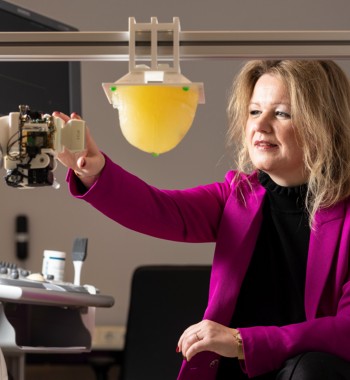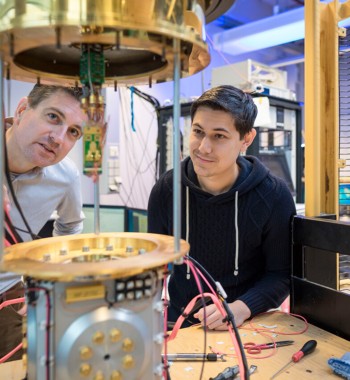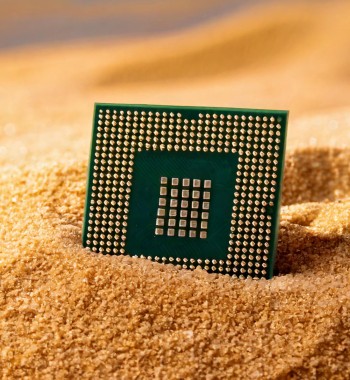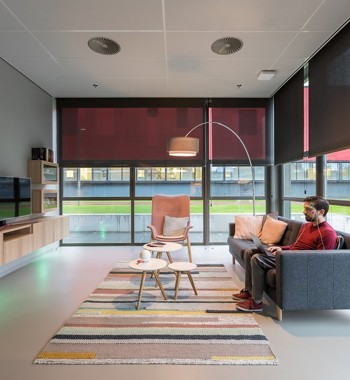Latest science stories
More stories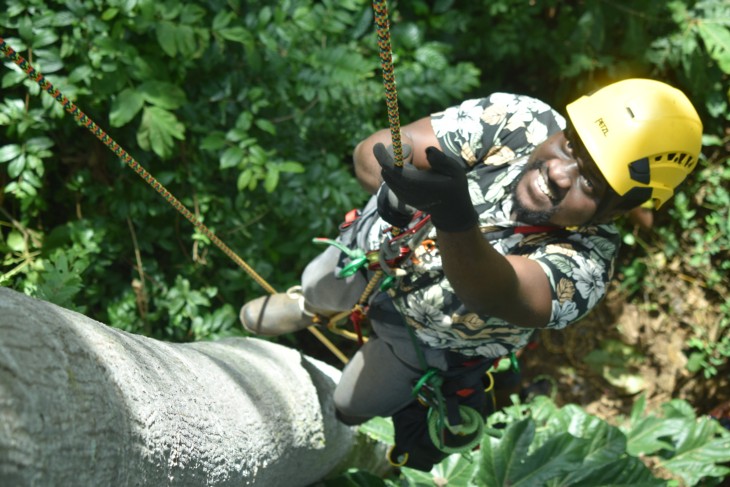 science ClimateCitizen science in the treetopsAt sunrise, deep in Ghana’s tropical forest, a camera 40 metres above ground wakes up. It captures a treetop bursting into bloom, or not... A small detail in a vast green landscape, but one that holds a crucial clue to understanding how our climate is changing.
science ClimateCitizen science in the treetopsAt sunrise, deep in Ghana’s tropical forest, a camera 40 metres above ground wakes up. It captures a treetop bursting into bloom, or not... A small detail in a vast green landscape, but one that holds a crucial clue to understanding how our climate is changing.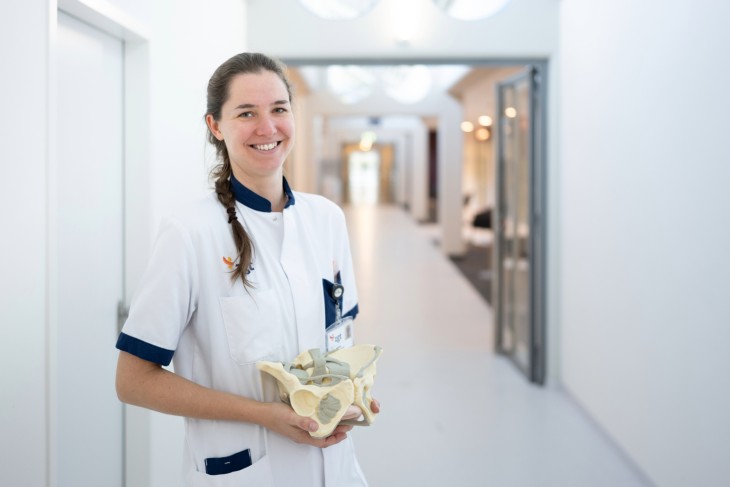 science HealthCare in 4D: a new perspective on the female bodyWhat if medical imaging could be done not lying down, but standing up? For women with pelvic floor disorders, this is no longer science fiction. At University of Twente, Anique Bellos-Grob is working on innovative solutions that make healthcare more accessible and effective for women. Using upright MRI and 4D ultrasound, she is mapping the dynamics of the female body like never before.
science HealthCare in 4D: a new perspective on the female bodyWhat if medical imaging could be done not lying down, but standing up? For women with pelvic floor disorders, this is no longer science fiction. At University of Twente, Anique Bellos-Grob is working on innovative solutions that make healthcare more accessible and effective for women. Using upright MRI and 4D ultrasound, she is mapping the dynamics of the female body like never before.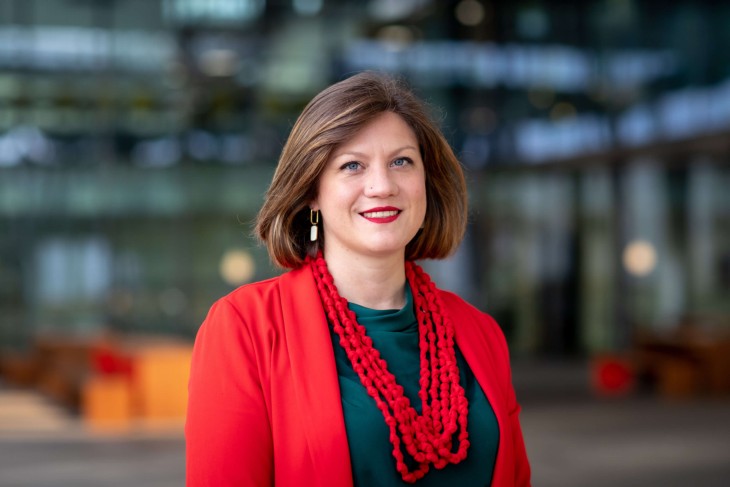 science HealthSupporting people with dementia and their loved ones with technologyFrancesca Toso, Assistant Professor in Human-Centred Design within the HCD Group at the University of Twente, is investigating whether technology can support people with dementia and their loved ones in coming to terms with the diagnosis, preparing for death, and dealing with bereavement. The University’s Technical Medical Centre (TechMed Centre) plays a key facilitating role in her research.
science HealthSupporting people with dementia and their loved ones with technologyFrancesca Toso, Assistant Professor in Human-Centred Design within the HCD Group at the University of Twente, is investigating whether technology can support people with dementia and their loved ones in coming to terms with the diagnosis, preparing for death, and dealing with bereavement. The University’s Technical Medical Centre (TechMed Centre) plays a key facilitating role in her research. science TechnologyLearning physics through a game of poolWhat do billiard balls and Newton’s laws have in common? Quite a lot. Gijs Frijters, an Applied Physics student at the University of Twente, and his classmates studied force, motion, and rotation using a pool table. Gijs shares, “To some extent, studying Physics does change how I look at everyday things.”
science TechnologyLearning physics through a game of poolWhat do billiard balls and Newton’s laws have in common? Quite a lot. Gijs Frijters, an Applied Physics student at the University of Twente, and his classmates studied force, motion, and rotation using a pool table. Gijs shares, “To some extent, studying Physics does change how I look at everyday things.” science ClimateIdea from Twente to nationwide movementThe energy transition requires action. Not just from policymakers or engineers, but precisely from the people who have to do it: the installation engineers, work planners and technicians. They are the key to change. But how do you give them space to learn the necessary skills as well as to innovate?
science ClimateIdea from Twente to nationwide movementThe energy transition requires action. Not just from policymakers or engineers, but precisely from the people who have to do it: the installation engineers, work planners and technicians. They are the key to change. But how do you give them space to learn the necessary skills as well as to innovate?
Podcast
More podcasts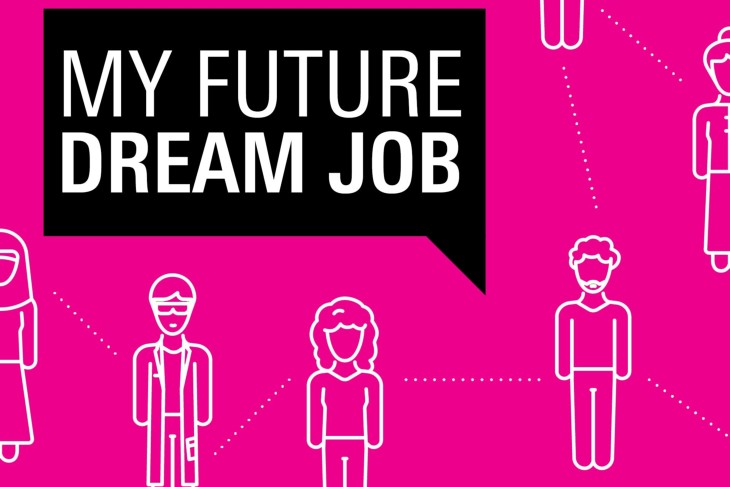 science TechnologyPodcast #4: The data security detanglerExplore the future in our podcast series, "My Future Dream Job," where Anic van Damme guides you to the year 2030. Our scientists explore prospective careers in cybersecurity, climate adaptation, and energy transition. Listen in to gain insights into the professions taking shape at the University of Twente.
science TechnologyPodcast #4: The data security detanglerExplore the future in our podcast series, "My Future Dream Job," where Anic van Damme guides you to the year 2030. Our scientists explore prospective careers in cybersecurity, climate adaptation, and energy transition. Listen in to gain insights into the professions taking shape at the University of Twente. science TechnologyPodcast #3: The competence brokerExplore the future in our podcast series, "My Future Dream Job," where Anic van Damme guides you to the year 2030. Our scientists explore prospective careers in cybersecurity, climate adaptation, and energy transition. Listen in to gain insights into the professions taking shape at the University of Twente.
science TechnologyPodcast #3: The competence brokerExplore the future in our podcast series, "My Future Dream Job," where Anic van Damme guides you to the year 2030. Our scientists explore prospective careers in cybersecurity, climate adaptation, and energy transition. Listen in to gain insights into the professions taking shape at the University of Twente. science HealthPodcast #2: The hypothesis extractorExplore the future in our podcast series, "My Future Dream Job," where Anic van Damme guides you to the year 2030. Our scientists explore prospective careers in cybersecurity, climate adaptation, and energy transition. Listen in to gain insights into the professions taking shape at the University of Twente.
science HealthPodcast #2: The hypothesis extractorExplore the future in our podcast series, "My Future Dream Job," where Anic van Damme guides you to the year 2030. Our scientists explore prospective careers in cybersecurity, climate adaptation, and energy transition. Listen in to gain insights into the professions taking shape at the University of Twente. science DigitalisationPodcast #1: The human-machine interaction expertExplore the future in our podcast series, "My Future Dream Job," where Anic van Damme guides you to the year 2030. Our scientists explore prospective careers in cybersecurity, climate adaptation, and energy transition. Listen in to gain insights into the professions taking shape at the University of Twente.
science DigitalisationPodcast #1: The human-machine interaction expertExplore the future in our podcast series, "My Future Dream Job," where Anic van Damme guides you to the year 2030. Our scientists explore prospective careers in cybersecurity, climate adaptation, and energy transition. Listen in to gain insights into the professions taking shape at the University of Twente.
